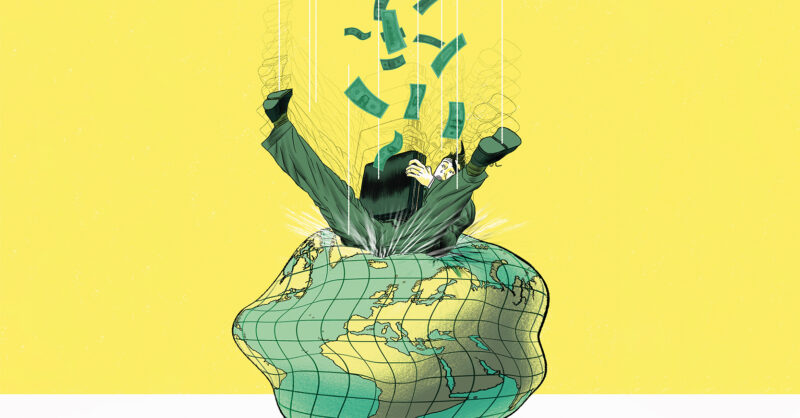Throughout history, global trade and financial systems have predominantly operated through a leading currency. For the United States, this role has provided immense power and wealth. By printing dollars, the U.S. can exchange them for goods like food, oil, smartphones, or automobiles. This process is akin to conjuring goods out of thin air, as the world desires and needs dollars. However, not all nations benefit from such a system. A 2023 Chinese Ministry of Foreign Affairs white paper criticized the U.S. for enjoying “exorbitant privilege” by using its currency to exploit resources and factories globally.
Historically, the rise and fall of great powers align closely with the cycles of reserve currencies. Should the U.S. lose its status as the world’s leading power, the dollar’s role as a global reserve currency may diminish. This shift could result from events like world wars or financial crises. However, maintaining this privilege requires preventing such outcomes.
Being the holder of a global reserve currency is both a blessing and a curse. While it allows a nation to prosper by merely printing money, it can also lead to deindustrialization. The overvaluation of the reserve currency makes it difficult for the issuing country to sell its goods globally, leading to manufacturing and agriculture relocating elsewhere. This situation was evident in Donald Trump’s complaints about U.S. trade deficits, which he attributed to tariffs and obstacles placed by other countries. Reducing these deficits would require limiting the inflow of money into the U.S., challenging Wall Street’s interests.
Stephen Miran, a member of Trump’s Council of Economic Advisers, noted that as the U.S. shrinks relative to the global economy, it must export more financial assets to sustain global trade, leading to larger deficits. This dynamic risks transforming the U.S. into a financial services hub at the expense of manufacturing. Trust in the dollar has begun to waver, with investors seeking alternatives. Concerns about a U.S. recession and inflation due to tariffs have contributed to this shift. Additionally, the possibility of the U.S. economy becoming less central to global exchanges threatens the dollar’s dominance.
If Donald Trump were to limit capital inflows or tax dollar assets, trust in the dollar could erode further. His comments about potentially fraudulent debt have raised concerns about selective defaults. Meanwhile, China’s capital controls and America’s financial sanctions highlight contradictions in maintaining an international reserve currency. Investors are increasingly considering alternatives in Europe and Japan. As the costs of issuing a global reserve currency grow, addressing them becomes inevitable. Trump’s agenda may lead to new strategies, but the survival of the dollar’s dominance remains uncertain.
— new from New Statesman
